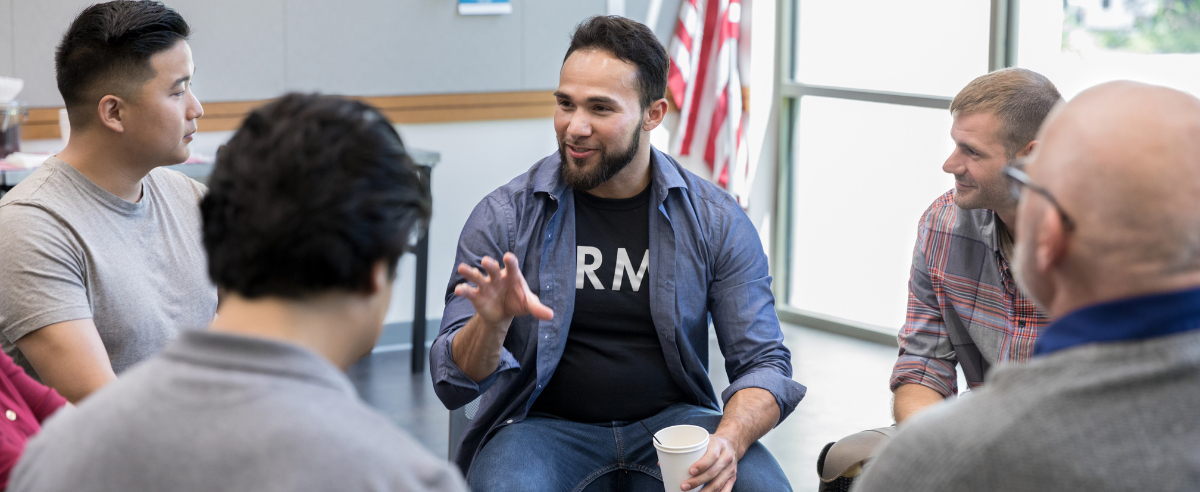
If you’ve been reading up on post-military tips from your fellow veterans, you’ve probably been told to start building your support network – but what does that look like exactly?
It depends. Some people detest networking, others credit their entire career to it. Whatever your stance, a successful military transition often hinges on your ability to make the right connection. A good network can:
Here at Ex-Military Careers, building connections is our bread and butter. We’ve been doing it since day one, and we know what to watch out for. Here’s how to get started.
Reframe It
If the concept of networking gives you the horrors, you’re not alone. Showing surface-level interest at a corporate networking event, solely to get what you want from a tenuous connection, can feel terrible (especially for veterans who are used to integrity and authenticity).
It’s time to reframe networking as connecting. Move beyond transactional, shallow networking and ask yourself what you need, think about what you can give, and laugh about how weird the civilian corporate world is.
Where to Look
If you’re looking for offline meetups, check out Eventbrite, Meetups, LinkedIn, and your local community centres. That said, it’s important to remember that in-person networking doesn’t work for everyone, and there are plenty more ways to build connections.
LinkedIn (our favourite) is home to countless webinars, panel discussions, roundtables, and even hybrid events, all of which tend to have a part dedicated to networking – sign up for the ones that make the most sense to you. We recently held a webinar on LinkedIn with our charity partners over at Combat Stress, and there will be more in the future, so make sure to keep your eye out on our page.
You can always reach out directly to people via LinkedIn – people are often far more willing to connect than you might think, especially civilians who’ve had more practice in the corporate world. All you need to do is be polite, professional, and a bit personalised. For example:
Hi [name], thanks for connecting, I’m keen to learn more about [specialist area] and given your experience, I thought you’d be the perfect person to ask for advice! If you have a few minutes I’d love to chat.
Cheers,
[your name]
Or if you were trying to target a fellow veteran:
Hi [name], as a fellow veteran, I’m currently navigating post-military life and I’d love to hear about how you got into [specialist area]. I’m keen to connect and hear any advice you have on making the shift.
Thank you,
[your name]
Do Your Research
Doing your homework before networking can help you feel more comfortable when the time comes to start talking. You’ll have a bank of knowledge to withdraw from (rather than having to blag your way through the interaction), enabling you to approach conversations with confidence.
Want to go into cybersecurity? Read up on the latest cybersecurity trends! Research allows for more personable, valuable conversations, which lets you create more relevant connections that line up with your career goals.
Don’t Force It
If you can’t help but feel networking is somehow both stale and slimy, don’t try and force it. Not every connection needs to be laser-focused on advancing your career goals.
Authenticity is key, and forgetting that can lead to some missed opportunities to form real connections. Look for natural opportunities to connect with people – shared interests and experiences, mutual connections, and even unplanned conversations can do the trick.
Leverage Ex-Military Careers
If you’re struggling to make connections, use the Ex-Military Careers platform as leverage. You can find us on LinkedIn here: https://www.linkedin.com/company/ex-military-careers.